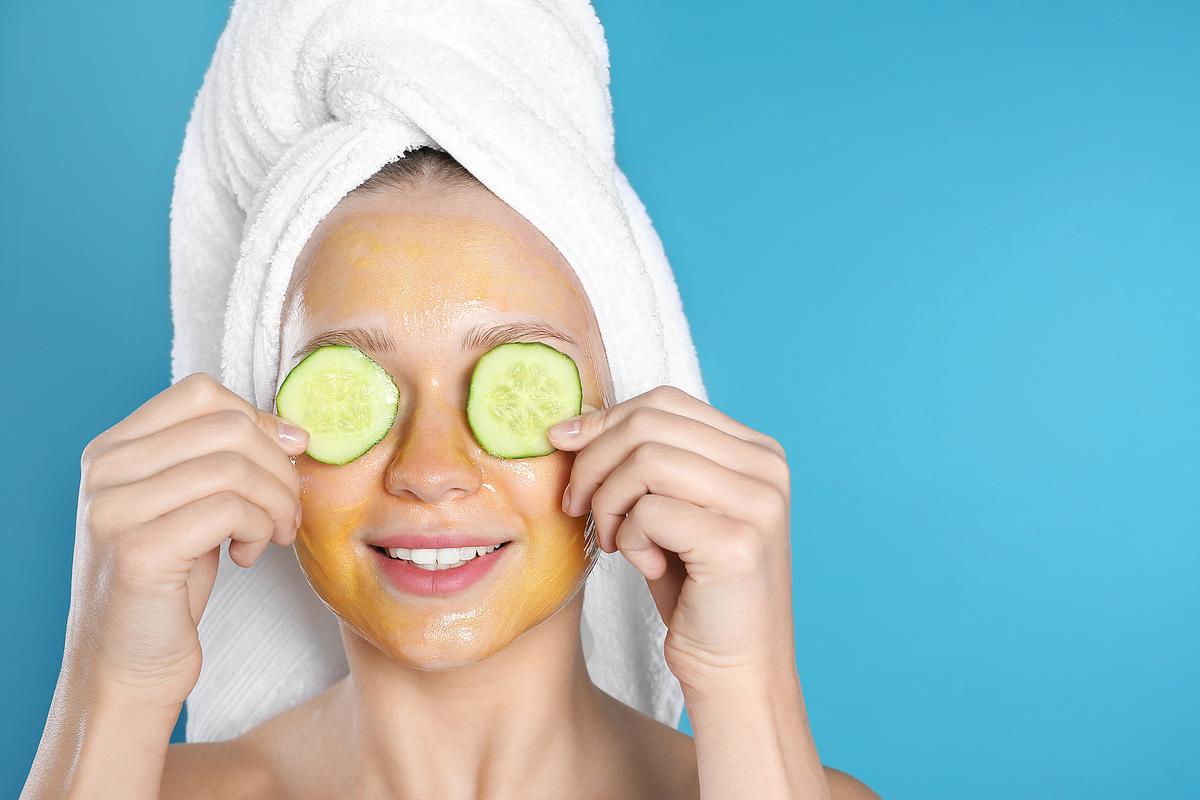(Don’t) Do-It-Yourself Skin Care: 6 DIY Home Beauty Ingredients You Should Never Use on Your Face by Dr. Gretchen Frieling

There are 47 million Instagram hashtags for #DIY. It’s a hot topic for everything from home décor to crafting, and of course beauty. DIY skin care is hyped as a safe and affordable alternative to store-bought products. Just because it can grow in your backyard or exists in your medicine cabinet, doesn't mean it's good for your skin. Looking into cleaner cosmetics isn't a bad idea, but some natural ingredients YouTube and Instagram sensations swear by can cause adverse side effects. Here are the most touted DIY skin-care ingredients and why you should never put them on your face:
1. Toothpaste for Acne Spots
Treating pimples with toothpaste is backed by many who have extolled its drying properties. While it can dry the pimple out, it can also cause irritation, redness and even peeling. The trend most likely started because toothpaste contains ingredients such as baking soda or hydrogen peroxide, which are drying. This is no better than any over-the-counter products, and may make the problem worse. The chemical and ingredients in toothpaste that fight bacteria are made for your teeth, not your skin!
2. Citric Acid (Lemons and Limes) As Toners
You may have seen DIY exfoliators or toners featuring lemon juice as an ingredient – but you should really avoid putting this on your face. Because of its high acidity, lemon juice can disrupt the natural pH levels of your skin leading to irritation and hyperpigmentation. While this reaction is not the same for everyone else, it's best to stay away from lemon juice, as you the acidity varies for every lemon.
A small splash of lemon juice on an acne scar or blemish is said to reduce hyperpigmentation and lighten the skin. But, you may leave your skin with a bigger problem if you go in the sun. Citric acid in its natural form contains a phototoxic compound called psoralens, which can cause a severe chemical burn when exposed to UV rays. Thankfully, this compound can be extracted from lemon juice through processing, so just because a product contains citric acid doesn't mean you should always avoid it.
3. Rubbing Alcohol to Dry Acne
At the crux of germ-fighting products, rubbing (isopropyl) alcohol cleans wounds, disinfects and sanitizes the skin. You think it would be great for your face too, right? Think again! Repeated exposure to isopropyl alcohol on the face strips the skin of its natural protective barrier, oils, and irritates the skin. While rubbing alcohol works great to remove bacteria, it's not always what is causing acne breakouts. Good acne products treat all aspects of the problem, not just the surface of the skin. They should target the inner layers of the skin and protecting it's natural pH levels in ways rubbing alcohol can't.
4. Baking Soda As an Exfoliator
Baking soda is an alkaline, meaning it attempts to neutralize acidity. When it comes to healthy skin, it should have a pH level of around 5.5. Baking soda (a pH of 9) can alter the outer layer of skin and actually cause it to break down, leaving the skin vulnerable to bacteria and worsening the condition. Baking soda, much like salt or sugar, is also used as a physical exfoliator. Although it can be useful in removing dead skin cells, I don't recommend using baking soda on the face as over-exfoliation causes irritation.
5. Raw Eggs in Your Face Mask
Anyone tell you not to eat raw eggs? Claims of salmonella and stomach issues would persuade you against it, but what about your face? While egg whites are definitely the cheaper alternative to most serums, it should not go anywhere near your face. If you have a scratch or unhealed blemish on your face, putting raw egg whites on your face can cause infection, not to mention possible allergic reactions. Egg white masks are said to tighten pores and brighten the skin, but any pore-tightening properties just get wiped away when washed off.
6. Coconut Oil As a Moisturizer or Cleaners
It's excellent for food, hair and even the legs, but coconut oil needs to stay far away from your face. Some claim it does wonders for their skin, making it brighter and smoother, others not so much. Coconut oil is extremely comedogenic; it can't be absorbed into the skin, clogging your pores and causing more breakouts. But what about as a cleanser? Even after washing off, coconut oil leaves a thin layer of film left behind which can suffocate your pores. As an alternative, other plant-based oils like Argan oil are anti-comedogenic are great for removing makeup.
Take 30 seconds and join the 30Seconds community, and follow us on Facebook to get inspiration in your newsfeed daily. Inspire and be inspired.
Related Products on Amazon We Think You May Like:
30Second Mobile, Inc. is a participant in the Amazon Services LLC Associates Program, an affiliate advertising program designed to provide a means for us to earn fees by linking to Amazon.com and affiliated sites.











join discussion